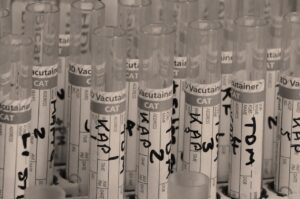The pandemic changed the whole world. Streets became empty, groceries equally bare, with tissue paper shortages and the height of social media. However, it also made us rethink our medical response. COVID-19 was highly contagious, so now that we are over the brunt of it, health workers and researchers have learned a lot. Now, research is going on for vaccines for “Disease X” or the next possible pandemic.
Countless diseases could infect and kill humans. As a species, our immune systems are vulnerable to a lot of pathogens. COVID-19, for example, decimated our population in only two years. So there really is a lot we should be afraid of, in terms of contracting something.
But because of the COVID-19 pandemic, health workers have learned how unprepared we are for contagious diseases. In the whole history of mankind, we have only managed to fully eradicate one disease, smallpox. That is despite all the developments we have had in terms of medicine.
Disease X Research Facility’s Goals
Researchers in the United Kingdom have created a research facility to prepare for any pathogens that might become the next pandemic. They have named this next possible pandemic, “Disease X.”
The research facility is called the Vaccine Development and Evaluation Centre. It is located in the Porton Down campus of the UK Health and Security Agency. They keep live pathogens in the facility to connect data and formulate vaccines for previously untreatable diseases like the flu or pox.
The goal of the facility is to create vaccines for the possible Disease X. Professor Dame Jenny Harries who is in charge of the facility said, “What we’re trying to do now is capture that really excellent work from Covid and make sure we’re using that as we go forward for any new pandemic threats. What we try to do here is keep an eye on the ones that we do know. For example, with Covid, we are still here testing all the new variants with the vaccines that have been provided to check they are still effective. But we are also looking at how quickly we can develop a new test that would be used if a brand new virus popped up somewhere.”

The facility hopes to help the world’s governments prepare for any upcoming health threats. Given the response rate and the delayed vaccine developments during the height of the pandemic, this research lab in the UK wants to take a step in the right direction.
The UKHSA’s chief scientific officer, Prof. Isabel Oliver said, “We know that through scientific advancement, we could detect and control these spreads before they have the impact that Covid-19 had on our lives. It’s not easy, but we know that if we strengthen surveillance and if we accelerate the development of diagnostics, vaccines, and therapeutics, we could do so much better.”
The research lab has the UK government’s full support. Secretary of Health Steve Barclay stated, “This new center cements the UK’s global position spearheading pandemic preparedness, vaccine development, and scientific discovery. This state-of-the-art complex will also help us deliver on our commitment to produce new vaccines within 100 days of a new threat being identified.”






















































